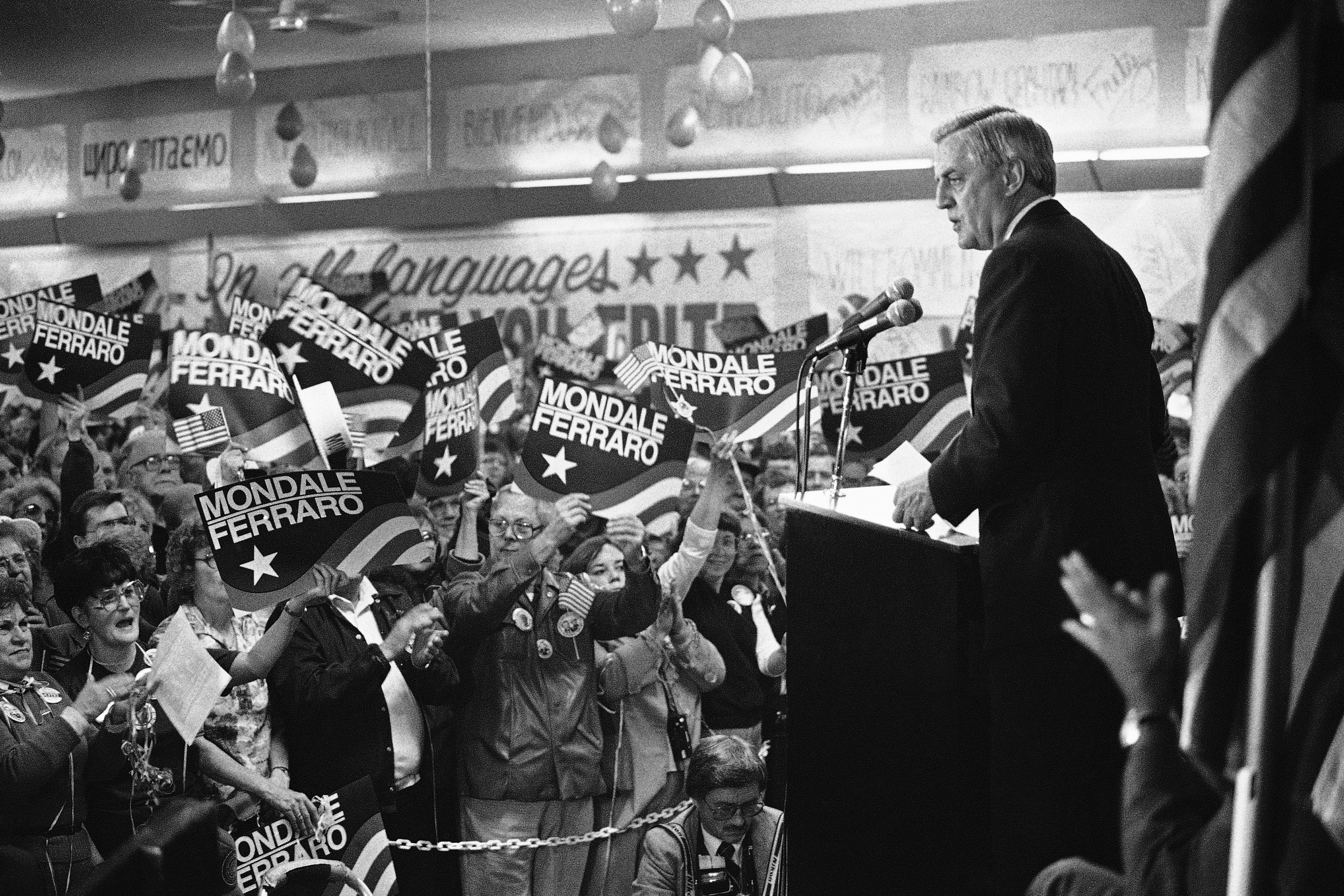Walter Mondale and the legacy of 1984
What Joe Biden and Nancy Pelosi learned from his presidential defeat


A free daily email with the biggest news stories of the day – and the best features from TheWeek.com
You are now subscribed
Your newsletter sign-up was successful
It isn't fair to Walter Mondale that his legacy will be defined by his landslide loss to Ronald Reagan in the 1984 presidential election, but it is also unavoidable.
Mondale, the former vice president under President Jimmy Carter, died Monday at the age of 93. He had a long career in politics and public service, getting his start on Hubert Humphrey's 1948 Senate campaign in Minnesota, eventually serving in the U.S. Senate himself — the last four years with Joe Biden — before accompanying Carter to the White House. Later, he would serve as the American ambassador to Japan. That is an honorable list of accomplishments.
Unfortunately, though, Mondale will be remembered primarily for his landslide loss to Reagan in the 1984 presidential race. Reagan won 49 states — Mondale, the Democratic nominee, won only his home state (barely) and the District of Columbia. It remains the most lopsided presidential election of the last 40 years.
The Week
Escape your echo chamber. Get the facts behind the news, plus analysis from multiple perspectives.

Sign up for The Week's Free Newsletters
From our morning news briefing to a weekly Good News Newsletter, get the best of The Week delivered directly to your inbox.
From our morning news briefing to a weekly Good News Newsletter, get the best of The Week delivered directly to your inbox.
Today's young progressives are often frustrated with the timidity of their elders. They do not remember, and may not realize, just how devastating that election was to a generation of up-and-coming Democrats. Biden, who would mount his first run for president just a few years later, had a firsthand view of the destruction, as did Nancy Pelosi, who served as the host committee chairwoman for the Democratic National Convention in San Francisco that nominated Mondale.
The lesson that generation of politicians took from 1984? Unabashed liberalism doesn't always pay at the ballot box, at least not nationally. Better to be cautious. The year after Mondale's loss, a group of centrist "New Democrat" party activists formed the Democratic Leadership Council, which eventually gave America the presidency of Bill Clinton — along with a few policies, like welfare reform and the 1994 crime bill, now disdained by so many progressives.
The conventional wisdom that Mondale was undone by his ultraliberalism may not be entirely correct, however. On one of the most critical issues in the campaign — taxes — Mondale operated on the quaintly conservative idea that government spending should be paid for. Reagan slashed tax rates after being elected to his first term in 1980, but he didn't stop government spending. The federal deficit swelled accordingly. By 1984, Mondale believed the bill was coming due.
"Whoever is inaugurated in January, the American people will have to pay Mr. Reagan's bills. The budget will be squeezed. Taxes will go up. And anyone who says they won't is not telling the truth to the American people," Mondale said in his speech accepting the Democratic presidential nomination. He added: "Let's tell the truth. It must be done, it must be done. Mr. Reagan will raise taxes, and so will I. He won't tell you. I just did."
A free daily email with the biggest news stories of the day – and the best features from TheWeek.com
Was that his fatal mistake? Mondale didn't think so. "The rebounding economy and improving job picture that year probably had more to do with President Ronald Reagan's re-election than my pledge did," he wrote in 2011. More than a few observers, though, blamed the pledge for his defeat.
And they lumped that pledge in with Mondale's other, more obviously liberal stances. He campaigned on a promise of freezing nuclear arms production while the Cold War raged. He was an advocate for the Equal Rights Amendment, which progressives are still trying to get passed. He put his money where his mouth was by making Geraldine Ferraro his running mate — the first woman to appear on the presidential ticket of either major party. Democrats wouldn't put another woman on the ticket until Hillary Clinton's 2016 campaign more than 30 years later, and that was only after Sarah Palin served as John McCain's running mate for Republicans in 2008.
But if the conventional wisdom was right at one point — the Mondale lost because he was too far left of the American public — it isn't clear that the lessons of 1984 are applicable to Democrats in 2021. Today's party activists are as emboldened as they've ever been in recent decades, and President Biden is governing accordingly. Walter Mondale was happy to see it happen. May he rest in peace.
Joel Mathis is a writer with 30 years of newspaper and online journalism experience. His work also regularly appears in National Geographic and The Kansas City Star. His awards include best online commentary at the Online News Association and (twice) at the City and Regional Magazine Association.
